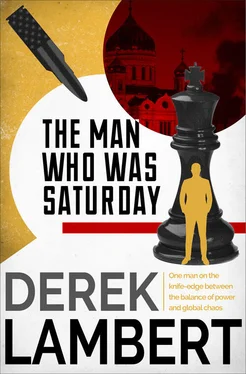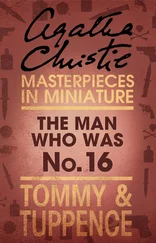‘But why wasn’t she tougher with us? Why aren’t we locked up? After all we’ll be held responsible for burning the place down.’
Svetlana, hair escaping from her red and white woollen hat, glanced at her wristwatch and lengthened her stride, long thighs pushing at the wolfskin; she was hours late for a date with the pilot. ‘Odd, isn’t it? Let’s count our blessings.’
They passed a snow-patched playground in front of a new pink apartment block. Children were playing at war, Soviets against Germans. The Soviets were winning again.
‘What do you think will happen now?’ Katerina asked.
‘God knows. But take care, pussycat, take to your lair for a while.’
‘I can’t, it would deny everything the Movement stands for.’
‘Then get ready to spread the good word in a labour camp. Or outside the Soviet Union.’
Katerina thrust her hands into the pockets of her old grey coat, even shabbier than usual beside the wolfskin. ‘You forget things have changed since Tatyana Mamonova and the other two were expelled. There are letters about the plight of women every day in the newspapers.’
‘Whining letters, vetted letters. We’re inciting revolution. The Russians have had one of those and they don’t want another. If the Kremlin thinks we really pose a threat we’ll be hustled into exile and there won’t be a whisper about it in the media.’
‘But there would be in the West.’
‘So? Far less harmful than a forest-fire of protest in the Soviet Union.’
Katerina knew she was right and the knowledge saddened her. She was a patriot, didn’t they understand that? Of course they did, the final deterrent. The Motherland, don’t betray her. That’s why we put up with so much: it was something foreigners, confusing Country and Party, would never understand.
A man passed carrying a bunch of tulips, holding them like a baby to protect them from the breeze.
‘But,’ Katerina protested, ‘we’re doing this for Russia, for her women ….’
She remembered the old joke. Four men sitting in a bar nipping vodka. ‘Where are your women?’ asks a Western journalist. ‘The working classes aren’t allowed in here,’ replies one of the tipplers.
Things were changing, it was true. Five hundred of the toughest job categories had been designated Men Only and unmarried mothers were getting more money per child. But equality? It was light years away.
As they approached the metro station Katerina said anxiously to her friend: ‘But surely you aren’t thinking of quitting?’ It was unthinkable.
‘Why not? We won’t get anywhere.’
‘Not you!’
Svetlana turned and faced Katerina. ‘Well, not until they do something about those goloshes.’
Laughing, they slid five-kopek pieces into the slot in the turnstile and ran down the warm throat of the metro station.
Katerina had worked at the weekend updating the files on the defectors so she had a free day. In view of events that morning she thought it might be her last free day for a long time.
On the way home she broke her journey to pick up some Caspian caviar that Lev Koslov, her boss, had promised to supply for the party that evening.
Koslov was a past master at obtaining defitsitny goods. The only drawback was that he expected rewards – a pinch here, a fumble there. So far she had eluded his inquisitive fingers but a two-kilo tin of glistening black pearls, as rare these days as swallows in winter, that would take some evasion. At least he wouldn’t be able to come to the party: today being what it was he would have to dance attendance on his wife.
When she entered the tiny office she shared with Sonya Ivanovna the first thing she noticed on her desk was a vase of mimosa, a cloud of powdery yellow blossom that smelled of almonds. Koslov making his play! Under the vase was an envelope.
Katerina slit it with a paper-knife. The note inside said: ‘Enjoy your day.’ It was signed Robert Calder.
Katerina leaned back in her chair and stared at an avuncular Lenin on the wall. Since she had seen Calder at Kreiber’s funeral she had wondered about him.
Like the rest of her flock at the Institute he was a traitor and therefore contemptible. But Calder displayed qualities a cut above the rest of the turncoats. A sense of humour for one thing; she smiled as she remembered him stuffing the sugared redcurrants into his mouth, like a guilty schoolboy. And there was strength in his face that hadn’t quite gone out to grass.
Why had a man like Calder deserted his country?
It bothered her.
It also bothered her that she had come to work in this futile place. She had only been here for a month but already it depressed her. The legion of lost souls sifting foreign journals for insights into their country’s policies. Eyewash. The KGB grabbed shifts in policies before the policy-makers shifted them.
So why had she applied for the job? Come clean, Katerina Ilyina, blat , the influence that accompanies position. Bottom-of-the-scale blat , perhaps, but already she had a few perks – tip-offs about consignments of luxury goods in the stores, the promise of a one-roomed apartment of her own, the passbook that asserted she was someone to be reckoned with, a hint that one day she might be allowed to travel abroad.
With her gift for languages, English, French and German, she had romped through the academic interviews. What occasionally bothered her was the way she had weathered all the other interrogations. Why hadn’t her involvement with the feminist movement damned her? Could they possibly understand that her belief in the rights of women was not a contradiction of patriotism? She doubted it.
The knock on the door startled her. It was probably Sonya returning from one of her furtive perusals of Western magazines, eyes shining behind her spectacles at the discovery of some new and wonderful decadence. Presumably she had knocked in case Koslov was seeking his rewards.
Katerina called out: ‘Come in,’ and Calder walked in.
He seemed to fill the room.
He said: ‘I wanted to make sure you got the flowers.’
She touched the saffron blossoms. ‘I got them, thank you, they’re beautiful. But ….’ She had only spoken to Calder twice since the funeral.
‘I’m glad you like them.’
‘I love all flowers. Muscovites are like that – they see too few of them. Soon we’ll see snow flowers.’
‘Snow flowers?’
‘In the winter people fall and die from exposure. The snow covers them and they are lost until the thaw. When the snow melts they’re found perfectly preserved …. Is anything the matter Comrade Calder?’
‘No, nothing.’ Calder smoothed the frown from his forehead with his fingertips. ‘I think I prefer mimosa. I suppose it comes from Georgia.’
‘Probably. Somewhere in the south, anyway. Have you seen much of the Soviet Union, Comrade Calder?’
‘Don’t you know?’ His smile tightened.
She skated over that one. ‘Do you feel you’ve been accepted?’
‘People have been very kind.’
What sort of an answer was that?
‘Why don’t you come to a party this evening?’ she said.
CHAPTER 3
Spandarian was a Georgian and therefore a schemer and on the afternoon of Women’s Day he was scheming busily in his office on 25th October Street.
On his desk were eight buff dossiers, dog-eared and stained from frequent perusals, and one eggshell blue folder, relatively unscathed.
Thoughtfully, stroking his luxuriant moustache and pulling on a yellow, tube-tipped cigarette, he picked up the dossiers in turn and scanned the latest computer print-outs inside them.
He didn’t touch the blue folder.
A knock on the door and his secretary, Yelena, cheeks as bright as a wooden doll’s, came in carrying a glass of lemon tea brewed in an electric samovar in the outer office. Spandarian slugged it with Armenian brandy.
Читать дальше












